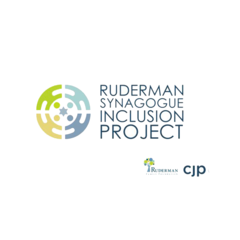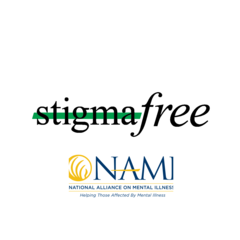ROSH HASHANAH 2007/5768
L’shanah tovah!
As Jews, we are fortunate to have our own celebration of a New Year which is at once
joyous and solemn, reflective and forward looking, one that allows us to reconnect with
our heritage, with the community, and with ourselves.
We read last week and we read again on Yom Kippur of Moses’ covenant with Israel
before they entered the promised land. “I make this covenant, with its sanctions, not with
you alone, but both with those who are standing here with us this day before the Eternal
our God and with those who are not with us this day.” (Nitsavim/Deut. 29: 13-14) It is a
weighty legacy—mutual and everlasting. It is about extended family and extended
community, a covenant not only with those present but also with those the African writer
Wole Soyinka calls “the unborn” who signify the future. Our tradition teaches us to
venerate the past; its strength, as embodied in the Kolin Torah, our Holocaust Torah,
enables us to believe in our future. We are, as the Babylonian Talmud teaches us,
responsible for one another, including those who come after us and because of us.
What about that future? First, we need to fortify the present, recognizing our diversity
and the complex and challenging world in which we live. As a congregation, we have
sought to build community and establish a culture of belonging, to strengthen our
connections to each other, to Temple Isaiah and to Judaism. We have tried to do this in
several ways, mindful of our different needs as our lives progress. At the same time, the
legacy of the covenant and our shared values inform those things we do which help
provide meaning, identity and comfort. Let me elaborate.
The Board structure which was implemented this past year provides a new approach to
the organization and operation of Temple Isaiah. We now have clusters of committees
reporting to one of six vice presidents, working within and across areas as a management
team. With this form of oversight, we are able to be more strategic and proactive in our
responses; we are able to have a broader agenda and to set priorities differently. We ask
the question: is what we are doing in alignment with our core values and the needs of the
congregation? Our new structure encourages collaboration, a deepening of engagement
as well as important efficiencies. We believe we have accomplished much in this first
transitional year; yet, there is still much more to be done to foster sacred community.
We have extended the purview of “membership” to include membership integration
throughout congregational life, through the establishment of affinity groups and activities
geared toward establishing connections to other individuals and to the broader
community. We are working from both ends of the spectrum and not neglecting who is
in-between, from singles, to families with young children, to b’nei mitzvah families, high
school and college parents, empty nesters, and members of longstanding. To support
these efforts, we have hired Jodi Kaufman, an early childhood educator, and envision a
new focus on “congregational education.”
We are broadening our worship experience. Our different services, Torah, Music,
Family, Yom Shabbat, Minyan and Seeking Shabbat, appeal to a wide range of
congregants and we expect that the introduction of the new prayerbook, Mishkan Tefila,
finally due this fall, will bring us to new spiritual heights as it did in its trial run on an
erev Shabbat last spring.
Our Tikkun Olam committees are working together to enhance and better coordinate the
ways in which we take care of each other in our community. We are looking to create a
culture where more people participate in providing these caring acts and congregants are
more comfortable asking for and accepting such assistance. Through our Temple Isaiah
Organizing Project we have achieved several milestones: the Irving J. Fain Award for
Social Action from the Religious Action Center of Reform Judaism; membership in the
Greater Boston Interfaith Organization or GBIO; the appointment of Chuck Koplik to the
14-member GBIO Strategy Team. In GBIO, we join with 65 other religious institutions
to bring our collective voices to issues of political and social importance on the local and
state level, issues such as Healthcare, Aging with Dignity, Youth and Safety. At the
same time, we contribute to our own community through activities and programs on these
important and timely topics. Our own independent efforts have led to interfaith dialogue
with Grace Chapel and a unique relationship with an evangelical church, and to the
Minuteman Environmental Initiative, a coalition of local synagogues and churches. The
Organizing Project and our Leadership Development Program have been instrumental in
providing opportunities for effective engagement in a wide range of Temple and
community activities.
To underscore that Temple Isaiah is not a Temple for Lexington but happens to be
located in Lexington, the Temple Isaiah Diaspora Program or TIASPORA, as it was
called, has raised awareness about the needs of congregants from Arlington, Bedford,
Belmont, Waltham and other communities who comprise about 20% of our membership
and, we hope, has resulted in an increased sense of inclusion.
Our community extends beyond the congregation and we are blessed to have an extended
family that includes our staff, educational, administrative and maintenance. This past
year, we established a matching retirement plan for employees who work at least 1,000
hours a year and who are not covered by pension plans through professional
organizations. The plan offers a 50% match on employee 403b contributions of up to 6%
of salary. If we are to consider ourselves a sacred community, it is important that we
embrace all who are a part of it and help ensure their futures as well.
There are so many who contribute so very much to this community every day and on
these days: Rabbi Jaffe, who has inspired us to consider a new vision for the
congregation; Rabbi Brown, whose promise has been recognized for participation in a
national executive leadership program; Cantor Solomon, who has enhanced our
appreciation of new melodies and new compositions; Rob Humphreyville and our choir
whose music and voices enrich our worship experience; Marilyn Stern, Acting Director
of Education, whose talents were recognized by the Jewish Bureau of Education this past
year with the Keter Torah Award; Betsy Herman, our dedicated administrative director,
and her talented staff who have taken on more and more responsibility to enable our
community to function well; Deb Murray, our phenomenal accountant, who has made all
the difference in our record keeping; Ed Preciado, our maintenance supervisor, who
treats the Temple like his home; David Wasser, Diane Wyner and George Silverman
whose loving care has resulted in the beautification of our grounds; Bruce Ward and Phil
Shevrin and all the ushers, who are the tireless mainstays of our High Holiday
organization and Daniel Sheff and Howard Brick who are overseeing this effort as a
sacred responsibility; Ilene Benghiat, who has taken on the important work of childcare
to enable parents to partake of these services with peace of mind. I must make special
mention of Lynn Asinof, Margie Bogdanow, Sharon Grossman, Wendy Friedman,
Wendy Liebow and Daniel Sheff, our vice presidents, and Marc Rubenstein, this past
year’s Lead Trustee, who have taken on wide-ranging and challenging responsibilities
and, with other members of the Board, epitomize commitment to our community. Let me
also thank all of you in this special congregation. It is a privilege to stand before you on
the bima.
We approach another milestone as a congregation in the celebration of the 50th
anniversary of Temple Isaiah in May of 2009, and an opportunity to connect the past with
our present and our future. In preparation, we will be formulating a long and short term
strategic plan under the leadership of our elected Trustees that honors our founders and
all of you. Based on our strong traditions and values, it looks to define further who we
are as a community and to secure the future of this special place on several dimensions,
spiritual, cultural, financial and interpersonal. The 50th anniversary is a Jubilee year or
“Youvel” which literally means “coming back home.” As Rabbi Jeffrey Sirkman
explains, “Jubilee calls us to Covenant, to reaffirm through Jewish learning and sacred
living the ‘place’ we create, or find, as we make congregation feel like ‘home.’”
Philip joins me in wishing you, shanah tovah! May it be a good year, a sweet year, a year
filled with health and happiness, a year of good works, of peace and of blessings for us
all.
Laura Gordon Fisher





